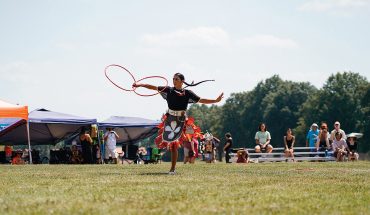by Elaine Neil Orr
My 32-year-old son wanted the piano, and I told him he could have it. I hadn’t played it for years. But I put off making the arrangements. Finally I got a piano technician to come to the house. “Seven hundred fifty dollars,” he said, “to really make it playable.” I had hoped we could get away with tuning. But the Kimble upright my parents purchased in 1972 needed new felts, some new hammers, partial restringing. I ran my hand along the keys. “I’ll call you,” I said. I have never liked the piano’s furniture, a somewhat gaudy display of blond Mediterranean modern. The Baldwin piano I learned to play in Nigeria, where my parents were missionaries, was housed in sedate, curving mahogany: simple, unadorned, polished as a mirror.
Yet I knew I would spend the money, plus the cost of moving, and the reason, I thought, was my son. I had promised it. In tennis and in life, my father always taught me to follow through. But then again, I put off getting anything done about the piano. I waited months. Occasionally, my son would send a text message: “Missing my piano.” Or he would stop by the house. “Sure wish I had a piano.” I had legitimate reasons for the delay: I was finishing a teaching semester; I was on a book tour; I needed to attend to my 93-year-old mother. I was tired.
I actually wanted the piano out of my house. That was why I had agreed in the first place when my son said he would like it. I had already given him a fine electric piano years ago. But now I wanted to re-do the living room. The piano was something of an albatross. One of those things you inherit that you can’t give away.
Finally I made a date to get the work done. Wednesday, between noon and three. The piano would be gone – to the technician’s studio where he would make the repairs and then have it delivered to my son. But Tuesday came, and I wasn’t ready to let it go. What was I holding on to? I turned around and looked at the piano one more time.
In 1972 when I was 18, my parents resigned their appointment with the Foreign Mission Board because I had asked them to come be with me in the United States. I had already spent a year here alone. They had remained in Nigeria. Growing up, my sister and I had always been told we came first. I had put my parents to the test. They had passed. And there we were in 1972, living in a church-sponsored house for missionaries. (My sister was in college.) In six months, my parents would be without income. They were in the prime of their lives. And they went out and purchased a new piano for me because I was taking lessons with a professor at the local university, and they wanted me to continue. My father, the reasonable businessman, made an unreasonable decision. After all, I could have gone to practice at the university. It was right down the street, a little over a block. We didn’t have a plate in that house that belonged to us. Not a book. Hardly a coat. We had a piano. This was a different sort of follow-through. This was walking on water when the land gave out.
In the beginning of the world – which for me was the town of Ogbomoso – we had a piano in our house, that calm, sedate mahogany. It was our anchor, the first piece of furniture to be placed in the living room, other pieces arranged around it. My mother held a B.A. in music from Mars Hill College in North Carolina, and piano had been her instrument. Surely her skill was one of the things my father adored about her. For as long as I can remember, he loved to listen to piano music and kept for our family a collection of the finest composers: Grieg, Chopin, Beethoven. In Nigeria, we had the huge black discs, LPs, packed as carefully as the crystal when we moved from compound to compound as my parents were reassigned from town to town.
The piano was a symbol of my parents’ bond. My mother kept a brass desk lamp on the lid, and a low lovely blue bowl with a sprig of philodendron. The dark wood glowed. Surely more than once my father kissed my mother, sitting on that piano bench: bass clef, treble clef.
I don’t much remember my mother’s playing piano in Nigeria; hymns perhaps, in the evening. She taught piano as she taught nursing and Bible studies. I was her pupil for years and a good student, too. She was a good teacher. When I was 15, my recital piece was Chopin’s Ballade in G-minor.
In 1972, living in Arkansas in that mission house, with so little but each other, the new Kimble upright was the ship by which we would cross the dark sea we foundered on, like exiles who can find no harbor. But having purchased it, and even though I heard them praying deep into the night – for direction, opportunity, jobs – my mother and father seemed to say, “The other furniture will arrive. The center is here. It will hold.” Though through all these years, yea decades, I had never comprehended those sentiments. I had never fully realized the gift of the piano until I was giving it away.
Wednesday came, and I let the movers take the piano. And I paid the $750 plus moving expenses. And I had the piano desk replaced so it looks a little less Mediterranean modern. And I set the piano sailing to another shore, my son’s house, where he and his wife are expecting a baby and another world begins.




